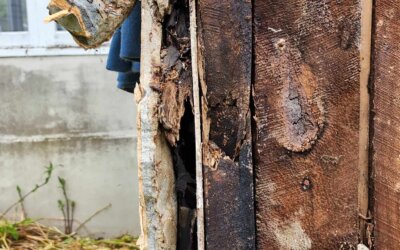5 Things You Need to Know About Environmental Remediation
January 21, 2025Environmental remediation refers to cleaning up contaminants from soil, sediment, and groundwater. Here are 5 environmental remediation facts you need to know.
Environmental remediation is the industry term for the professional cleaning of hazardous substances from soil, groundwater, and sediment.
Yet even with that simple explanation, environmental remediation can mean different things, and it can have a real impact on your worksite. So for some further explanation, here are five environmental remediation facts you need to know.
1. Many worksites require a Remediation Action Plan (RAP)
A worksite may have excessive amounts of contaminants in the soil, sediment, or groundwater. In this case, it might need a Remediation Action Plan. This plan essentially sets out the steps required to clean up the site.
As stated in Environment Guide, this plan will typically:
- Set remediation or management goals
- Document all risk-reducing procedures and plans
- Establish recording and reporting mechanisms
- Establish the environmental safeguards required to complete the remediation in an environmentally acceptable manner
- Identify and include proof of the necessary approvals, permits etc
2. There are three types of remediation
The types of remediation depend on what you’re dealing with.
Soil remediation is when there are contaminants in the soil that could pose a risk to human or animal health, or to other organisms.
Sediment remediation is when there are contaminants in sediment. This is a mix of soil, water, clay, and other organic materials, which can make it a more complicated task to clean up.
Groundwater remediation is when the water itself is contaminated. This can be with anything from chemicals to plastics and pesticides.
3. Remediation doesn’t always mean complete removal
Remediation can completely remove the affected area, treat it with chemicals, destroy the chemical hazards, or take other steps to clean up the environment.
In some cases, complete removal or cleaning of the contaminants simply isn’t possible.
There are several ways of dealing with this. For example, one solution can be to seal the contaminated site off so it cannot leach into surrounding areas. Another option is to mix uncontaminated materials into the soil or sediment in order to dilute the contamination.
4. Remediation can be required for all kinds of substances
Contaminants can be just about anything.
As an expert asbestos removal company, PROES often deals with removing asbestos and mould from the environment. However, hazardous materials can also include chemicals, lead, arsenic, pesticides, and so much more.
All of these materials require expert care to remove, as they can each pose their own risk to your health, and to the health and wellbeing of other animals and plants on the site.
5. Environmental Remediation can get your project back on track
Finding out that a site requires environmental remediation can put a spanner in your project plans. However, an efficient expert team can get your project back on track in less time than you might think.
PROES offers a variety of professional environmental cleaning services all over the lower North Island, including the Wellington region, Upper Hutt, Kapiti, Porirua, Levin, and more. We regularly deal with mould and asbestos removal, and can provide a free, no-obligation quote for your project.
Contact us today to discuss environmental remediation needs and learn more about how we can help and get your worksite back on track sooner rather than later.
Related articles from our blog
Common types of asbestos found in Upper Hutt
Asbestos is common in homes and commercial buildings in the Upper Hutt. Here are some of the most common types, and what to do if you find it on your property.
Why Environmental Remediation is Essential to your Demolition Project
Demolishing a property? You may need environmental remediation to remove or contain any hazardous substances present in the soil, sediment, or groundwater.
Your options for environmental cleaning in Kapiti
PRO Environmental Services offers a range of environmental cleaning options in Kapiti, from asbestos removal to bird and rat excrement and mould removal.


